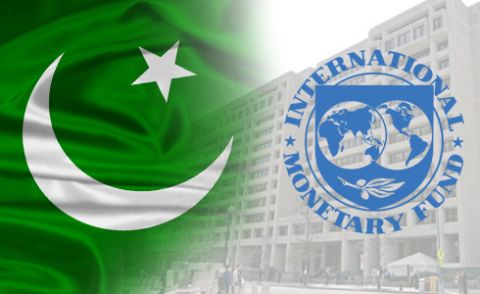The International Monetary Fund (IMF) has recommended Pakistan reduce the number of tax slabs for both the salaried and business class from seven to four, with a potential impact on the middle and upper middle-income groups.
The proposal, aimed at more than doubling tax collection from individuals and businesses, was put forward by a technical mission of the IMF during its two-week review of Pakistan’s tax policies.
The mission also suggested an increase in the existing reduced sales tax rates to the standard 18 percent, excluding some essential goods. While the IMF has not yet released an official report, the findings were shared with the federal government.
The IMF’s recommendation is not binding, and a draft report is expected soon.
The proposal faces resistance from tax authorities and the salaried class, which is already under a significant tax burden. The IMF had previously suggested increasing tax contributions from the agriculture and real estate sectors.
The specific recommendation involves reducing the number of tax slabs from seven to four. Currently, salaried class income tax rates range from 2.5 percent to 35 percent based on annual income. If implemented, the tax burden may increase for individuals in lower and middle-income slabs, experiencing a notable rise in their tax rates.
FBR officials noted that in the last fiscal year, the FBR collected Rs264 billion in income tax from the salaried class, with the highest contributions coming from individuals earning between Rs200,000 to Rs300,000 per month.
FBR spokesman Afaque Qureshi stated that the technical report from the IMF’s mission is yet to be received. The report highlighted 74 types of tax exemptions related to personal income and allowances costing Rs232 billion in the last fiscal year.
The IMF’s projection for the next fiscal year targets a Rs11 trillion tax, with over Rs4.8 trillion expected to be collected through direct taxation. The IMF recommended ending preferential sales tax rates, potentially resulting in increased rates on numerous goods to the standard 18 percent, while some sensitive goods might retain reduced rates.
Last year, the country incurred a loss of Rs130 billion due to reduced sales tax rates, according to the FBR’s Expenditure Report. The IMF’s proposals follow previous recommendations, including taxing the monthly salaried income of 50,000, which was later withdrawn by the World Bank.





Fixed income group is already affected from very rate of inflation and price hike. It has becone very difficult for them to meet both ends. Government should focus on untaxed sector like agriculture and trading by documenting their income.
It seems that the policy makers of this country are squeezing out the poor and salaried class to save the elites. This country needs serious tax reforms, not just partial dictations from the IMF.
I really enjoy your blog. Your content is very informative. This Wow, nice blog. the article is so interesting that it caught my attention.